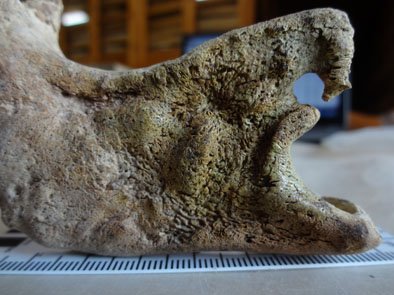
Submitted 21 March 2016 by Andre Gonciar / Anna Osterholtz
Field school sexual harassment policy: http://media.wix.com/ugd/3ff7f8_174be992cedb4b16ab09ba9a557bcaa7.pdf

The human remains under study come from a medieval isolated funerary mound, separated from both community and church. Either it is a shunned segment of their social construct, or it is a place where they buried individuals that displayed certain not predetermined physical, social, religious stigmata, or they are the victims of an epidemic. The core question we will ask in this research workshop is: how were those people (and their death) different? Therefore, the focus of this intensive lab-based workshop will be on the identification of pathological changes in skeletal material. Participants will be trained in identifying in a bioarchaeological context, and recognizing the osteological markers for: bony remodeling and reactions, infectious diseases: tuberculosis, leprosy, Treponema and other bacterial infections, mycotic, viral, parasitic infections, metabolic disorders, congenital disorders/skeletal dysplasia, and normal age related changes.
Project Director: Dr. Anna Osterholtz (University of Nevada - Las Vegas); Dates: July 3 - July 23, 2016
Copyright © 2024 American Association of Biological Anthropologists.
Site programming and administration: Ed Hagen, Department of Anthropology, Washington State University